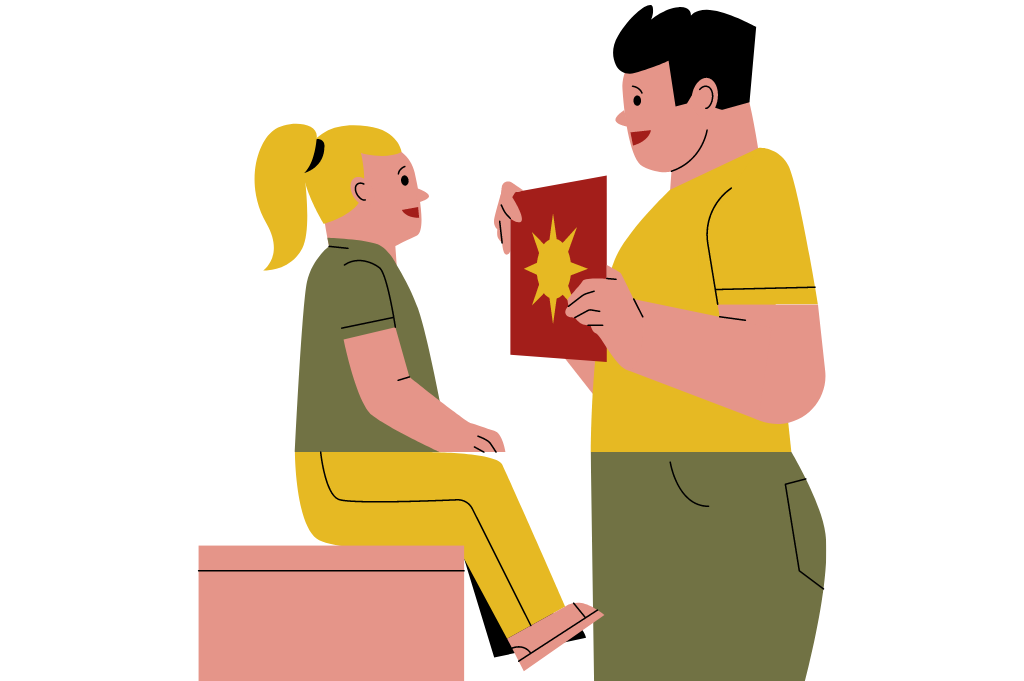
Child and Teen Counseling

Child and Teen Counseling
Maria Droste Counseling Center in Denver, Colorado offers in-person and online child and teen counseling. If your young one is struggling with social or emotional issues, know that there is help available. We offer affordable access to trained counselors for all Coloradans.
Compassionate care
We know that each child is unique, just like their experience with emotions. That is why our center provides counseling services tailored to each child’s developmental level and emotional capabilities. There is no “one size fits all’ approach to caring for your loved one.
Support as they grow
Social-emotional skills take practice. Similar to reading, writing, and other skills, social-emotional skills must be taught to children and teens and practiced regularly. Therefore, it’s normal for children and teens to need support in strengthening their emotional intelligence.
Parents can rest assured knowing that it isn’t ‘unusual’ for one child to need more emotional support than another. Again, every child is unique. That is why practicing social-emotional skills with support as needed can be a healthy and normal part of growing up.

We offer affordable online and in-person child and teen counseling services.
Contact us today if you’re looking for help. Our team will match you with a therapist that is right for you. Let us know if you have any specific preferences, including gender, payment type, approach to services, or other criteria.
What parents should know
Without a doubt, parents love their children and intend to raise them to the best of their ability. However, what parents aren’t always prepared for are the challenges that occur over time. One day, we suddenly realize that our kids also have their own wills and their own language to express themselves and make their own decisions.
Often, parents report they are afraid counselors will think they are “bad parents,” then judge them and their children, which prevents parents from seeking support. On the contrary, therapists know how difficult it can be to provide a supportive space for a child to grow. Counselors who work with parents understand the stressors parents face, such as:
- The influences of a rapidly changing society can impact our children’s lives in a way that simply did not exist when they were children. Meanwhile, social media and the internet have increased the social and emotional challenges our children face. As a result, it is very difficult for adults now to understand what this is like for children.
- Additionally, the current make-up of families often means that children are often being raised either by single parents, co-parents parenting from separate homes, or in blended families with step-parents and step-siblings. Making successful transitions to new circumstances and new family members requires good planning, healthy communication, and positive parenting skills.
With these in mind, the approach to child counseling is often very solution-focused. It provides skills and tools for the family to work with at home, tailored to the specific needs of their children. Most importantly, counselors and parents can work in partnership to identify areas that need strengthening and practices to address those areas.
What to expect from child counseling
Child therapy can take on a variety of forms. For example:
- Individual child counseling, including play therapy
- Group counseling
- Communication and problem-solving skills for children and parents
- Classroom interventions
- Family therapy
- Resources for identifying children with more serious mental health needs
Counseling can also assist parents of children who have conditions such as Attention Deficit Disorder to improve their ability to focus learn. By implementing adaptive skills and practices at home, counseling will empower both parents and children to cope effectively with the symptoms of this disorder.
Child Counseling and Play Therapy
Small children often have needs that can be addressed in therapy but can be limited by their undeveloped ability to verbalize their feelings. Play therapy is a specific method of therapy developed especially for children. It utilizes their own creativity to understand their feelings and to help them heal and grow, all while having fun.
Child therapy in schools
Maria Droste also offers in-school therapy at the elementary level in the Denver area. Our Children First program works with kids at school who are dealing with emotional, social, and/or behavioral issues. Trained graduate-level interns support them to learn new skills, improve relationships with their peers, and develop better focus on their academic pursuits to succeed at school.
Contact your child’s elementary to see if the Children First program is at their school. If not, and you feel your child’s school could benefit from the Children First program, contact us today.
Adolescent issues and teen counseling
Adolescence is a very difficult life stage; it is full of growth, discovery, change, self-doubt, and a search for an identity. It is a time when social and peer relationships become extremely important, and finding one’s place in the world can be daunting.
Keeping up with all that change can be exhilarating and exhausting for everyone involved. Moreover, some completely normal behaviors can seem strange and annoying to parents, while some concerning behaviors may be inappropriately dismissed as “just being a teenager.”
If you are unsure whether your teen is heading for trouble and you want to speak to someone about what’s going on, contact Maria Droste Counseling Center. We have therapists who specialize in working with the unique needs of children and adolescents. Our teen counseling can help adolescents build strong self-esteem and a sense of belonging in their emerging worlds.

We offer affordable online and in-person child and teen counseling services.
Contact us today if you’re looking for help. Our team will match you with a therapist that is right for you. Let us know if you have any specific preferences, including gender, payment type, approach to services, or other criteria.
READ MORE
